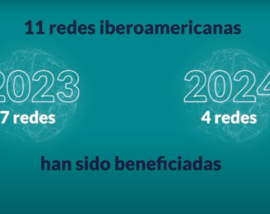Organization: UN Children's Fund
Country: Panama
Closing date: 08 Jun 2017
Latin American and the Caribbean (LAC) is the most ZIKV- affected region in the world. The latest PAHO reports from epidemiological week (EW) 44 (27 April. 2017) show that a total of 769,349 suspected and confirmed ZIKV cases have been reported by 48 countries and territories in the region, and 3,122 cases of Congenital Zika Virus Syndrome (CZS) have been reported in 26 countries and territories. While many countries have reported a decrease in new cases, the number of infections and the number of new-borns with CZS continues to rise, with pregnant women and women of childbearing age remaining highest-risk groups.
In terms of the magnitude of long term disabilities caused by ZIKV, recent research shows that the number of children affected by CZS is probably much higher than currently estimated due to gross under-reporting of microcephaly, with only 25 per cent confirmed of the total cases. In addition, there is a high incidence of other disabilities conservatively estimated to affect 10 per cent of all infected pregnant women. The number of countries affected and the incidence of new cases of microcephaly continue to increase, with Mexico being the latest country to report its first case. The under-reporting of microcephaly implies that the estimate of over 3,122 cases of microcephaly in April 2017 represents only the tip of the iceberg; PAHO and WHO speculate that tens of thousands of children may be affected in one way or another.
Regarding the humanitarian impact of the epidemic specifically on children and their families, the consequences include a wide range of negative outcomes at the psychological, social and economic level. One of the problems face by women is the lack of access to quality sexual and reproductive health services to enable them to plan their pregnancies, and pregnant women with ZIKV face a high level of uncertainty, stress and fear, as it is not yet clear what risk factors increase the likelihood of having a baby with CZS. Once a baby is born with CZS, families potentially face other problems such as rejection from parents, relatives and neighbours, mostly related to stigma and in some cases mothers and their child affected are abandoned. In terms of economic impacts, mothers usually become full time caregivers, leaving their jobs in most cases and negatively impacting the financial status of the family. As observed in all countries, the care and support services for these children require that families invest in additional resources for transportation to health services, medicines and rehabilitation tools, putting extra pressure in the economy of families.
UNICEF in Latin America and the Caribbean region is implementing a regional ZIKV response plan. The goal of the response is to enhance UNICEF’s contribution to the control of the spread of ZIKV and the mitigation of its impact on children and their families. UNICEF is working in support to nationally led efforts, and in close collaboration with PAHO/WHO as UN leader in the response, and other relevant stakeholders, with a focus on its comparative advantage and mandate, to:
1. Prevent transmission of ZIKV through:
2. Provide non-clinical care and support to families affected by ZIKV, including multi-disciplinary management of Congenital Zika Syndrome and other malformations.
In June 2016 UNICEF LACRO began the process of incorporating the component of non-clinical care and support for children affected by the virus Zika and their families to the response plans that had been developed by CO’s. This last component allowed a much more integrated response to Zika.
To meet these requirements effectively, the UNICEF LACRO intends to hire services of a senior specialist with experience in ECD and disabilities (preferably in the LAC region), with an emphasis on expanding and strengthening 2017 lead UNICEF actions for non-clinical support to affected families and young children with congenital ZIKA syndrome and other developmental disabilities.
Please indicate your ability, availability and daily/monthly rate (in US$) to undertake the terms of reference above (including travel and daily subsistence allowance, if applicable).
For more information kindly refer to the complete Terms of Reference attached in this advertisementTOR ZIKV Senior Care and Support_June to December 2017_09052017.docx.
UNICEF is committed to diversity and inclusion within its workforce, and encourages qualified female and male candidates from all national, religious and ethnic backgrounds, including persons living with disabilities, to apply to become a part of our organisation.
How to apply:
UNICEF is committed to diversity and inclusion within its workforce, and encourages qualified female and male candidates from all national, religious and ethnic backgrounds, including persons living with disabilities, to apply to become a part of our organization. To apply, click on the following link http://www.unicef.org/about/employ/?job=504778





